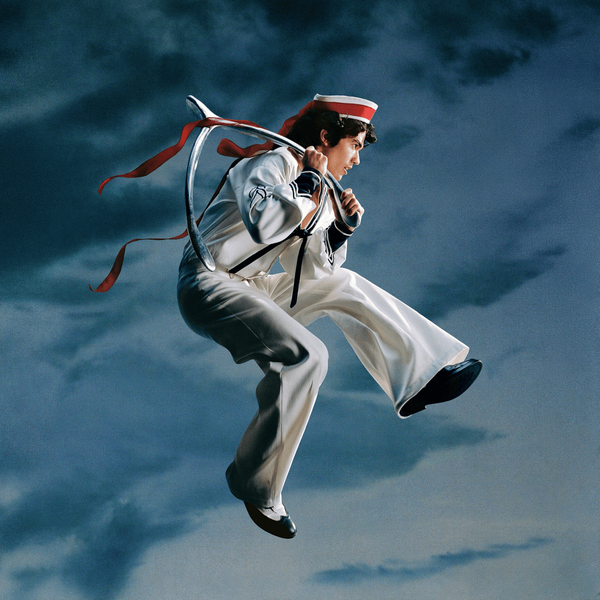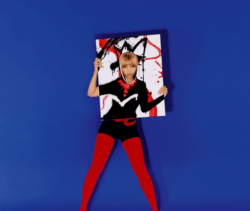Something about a wishbone, a metaphor for luck and ill-fated relationships, holds a lot of meaning for Conan Gray. The singer-songwriter released Wishbone (2025), “the album [he] has always wanted to make,” on August 15. The emotional complexity of Gray’s fourth studio album is deeply personal—just the snap of a wishbone reveals feelings of inadequacy, yearning, and ultimately, indifference.
Wishbone is, in part, an attempt to tell Gray’s emotional truth through fictional events. Three songs on the record—“This Song,” “Vodka Cranberry,” and “Caramel”—take place in a fictional world that mirrors Gray’s real experiences. In the accompanying music videos, Gray introduces listeners to Wilson and Brando, played by Gray and Corey Fogelmanis of Girl Meets World (2014-2017) fame, respectively.
Many of the symbols in Wishbone show up as we watch Brando and Wilson fall out of love and into tragedy. As Wilson and Brando set the scene for the album in the music video for “This Song,” they discuss the wishbone that dangles from Brando’s dashboard. In the scene’s most revealing moment, Wilson says that wishbones sadden him because “someone always gets the short end of the stick.” The lovers’ mindsets are different from the beginning: Brando has wishes while Wilson has doubts.
Wilson was right to have his doubts, reflected in how he and Brando ended just as soon as they began. Fearing that queerness will become an aspect of his identity, Brando closes himself off from Wilson, all but rejecting his existence. The real-life lover Brando is based on lies through his teeth in the opening song, “Actor,” pretending that he never really knew Gray in the first place. Wilson can’t prove that he was more than an experiment to Brando; all he has are fleeting memories. Since Brando rewrites the story of their relationship to fit only his own needs, Wilson is left holding the short end of the stick.
While Gray’s use of luck rituals as a metaphor for unluckiness seems simple, these rituals are often more than meets the eye. Gray chose the wishbone metaphor because it is the only wishing ritual that involves two people. Wishbones represent luck, but many factors affect who is left unlucky. The speed and pressure relative to the partner ultimately determine who receives the short end of the stick; luck alone cannot explain it.
When I first heard the phrase “short end of the stick,” I didn’t picture a wishbone, but the metaphor fits well given Gray’s experience and discography. A couple songs from Gray’s second studio album, Superache (2022), come to mind. These songs shine a light upon the difficult family life Gray was born into. Namely, “Family Line” and “Summer Child” illuminate how childhood trauma causes Gray to put the needs of others above his own. “Family Line” examines how Gray’s pattern of dishonesty began when his mother had to lie to protect her family from domestic abuse, while “Summer Child” reveals that Gray is “way too busy taking care of everybody to take care of [himself].”
In Wishbone, Gray directly connects his difficult childhood to his romantic behaviors. Gray confesses in “Connell” that he allows men to make him feel worthless because of the trauma he endured from his father. The song is named “Connell” after the pivotal character in Sally Rooney’s book Normal People (2018). Connell’s love interest, Marianne, struggles with worthlessness similarly to Gray. When Gray feels like he’s “not worth shit,” a choir breaks out, validating the worst thoughts inside his head. The song circles around the name “Connell” towards the end, just to remind Gray of “how good it feels to hurt,” “how little [he] deserves,” and “his father’s slurring words.”
Although Gray insists that Wishbone’s message is ultimately an “incredibly hopeful” album despite its woes, I see little room for such hope, given the album’s structure. The last two songs—“Eleven Eleven” and “Care”—are songs of yearning that put aside the idea of moving on. “Eleven Eleven,” a synth pop song on a guitar-based album, is an exercise in magical thinking. The song reimagines the luck rituals as signs that Gray should return to the relationship. While “Care” does more to distance Gray from the past, he still does not “think [he] could love again” by the end of the record.
Wishbone can be quite difficult to listen to. There exists a tension between how little Conan feels he deserves and how deserving his audience knows he is. The search for a happy ending in Wishbone both looms large over “Connell” and leaves the album with an unsatisfying conclusion. Wishbone tells a compelling story, and listeners love a happy ending. Conan, however, does not owe his listeners any happy ending that he himself has not yet found. Any personal happy ending for the listeners must be a gift given both to and by oneself.
In my own search for happy endings from “Wishbone,” I have found that “My World” offers a more affirming and freeing takeaway than “Eleven Eleven” or even “Care.” “My World” is a reminder that the opposite of love is not hate, but indifference. For an artist who often focuses on what others think, say, and do, “My World” is Gray at his least dependent. Gray finally does not wish he was someone else, someone who could forget easily and move on. Instead, he sees Brando’s life as a sad performance for people who will never see the most vibrant part of him.
To carry the short end of the stick is one thing, but it is another choice altogether to finally pick up a new wishbone. The latter option is often best practice for those who feel down on their luck.
Voice’s Choices: “My World,” “Class Clown,” “Eleven Eleven”







